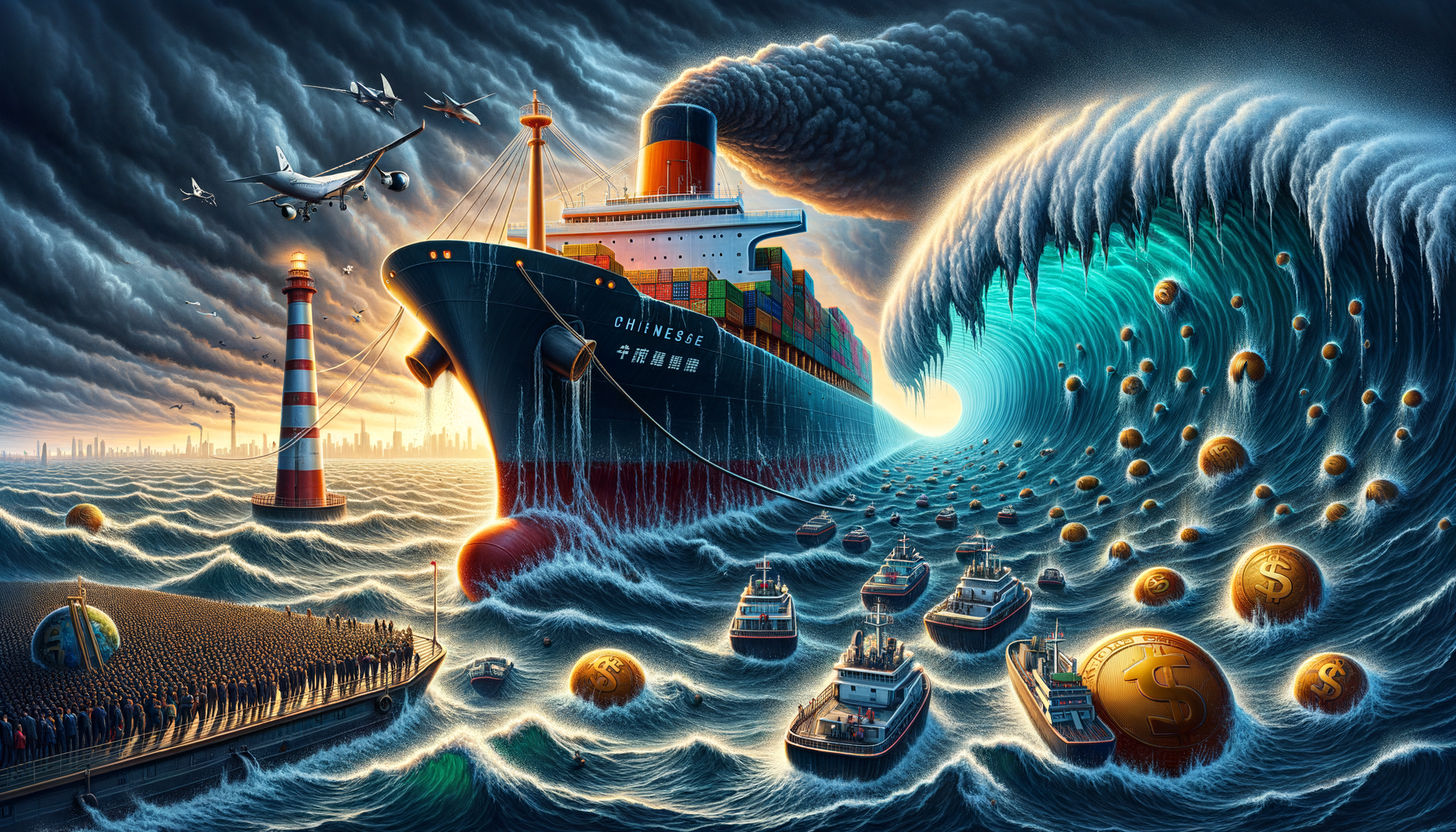“Unveiling China’s Economic Struggles: A Deep Dive into Deflation and Declining Consumer Confidence”
As we navigate through volatile economic waters, it is important to understand the current state of the world’s second-largest economy, China. Two major signs of weakness have emerged from China, which warrant close attention. They are a tendency towards deflation and a marked decline in consumer confidence. The far-reaching consequences of these developments could have significant global economic repercussions, given China’s integral role in the international market.
First, to get to grips with these developments, we need to unpack what deflation means in economic terms. Quite simply, deflation is a decrease in the general price level of goods and services. This phenomenon may seem like a boon for regular consumers, as it means that everyday items become more affordable. However, in practice, deflation often drags down the economy by creating a vicious cycle of reduced spending and slowed economic growth. This is because consumers, anticipating further price decreases, may withhold spending, leading to a drop in demand for goods and services.
What’s happening in China right now?
Evidence of a deflationary trend in China has been observed, ending the inflationary pattern witnessed over the past few years. This shift is highly significant and harbors potential consequences for both Chinese and global economics. While the Chinese economy is known for its resilience, the deflationary tendency implies a slowdown that may take a toll on both domestic enterprises and foreign investments.
The impact on China’s domestic enterprises can be critical since deflation might lead to lower profits — resulting in potential layoffs — and can spell trouble for companies already struggling under high levels of debt. Furthermore, the deflationary trend starts a domino effect: decreased domestic spending causes reduced demand, which then impacts production levels and employment rates negatively. The ripple of these effects can prove detrimental to China’s economic stability and growth.
On the international front, a deflationary China has significant implications for global trade, given the nation’s colossal role in the world economy. Countries heavily reliant on Chinese imports, especially raw materials and manufacturing goods, could experience a price reduction, potentially eroding the revenue of companies trading in these materials. Moreover, this could possibly trigger deflationary effects on a global scale – a feared scenario often referred to as “deflationary spiral.”
The other critical aspect to look into is the decline in Chinese consumer confidence. As per recent surveys, consumer sentiment in China is at an all-time low, which can rock the boat of domestic consumption, a critical pillar of China’s economy.
Consumer confidence is a key economic indicator because it provides predictive insights on spending behaviors. High confidence means consumers feel positive about their financial future and are more likely to spend, while low confidence causes consumers to save more and spend less. The declining consumer confidence in China could, therefore, instigate a vicious cycle of decreased domestic consumption and dampened economic growth.
The decline in consumer confidence can be attributed to several factors including China’s slowing economy, income stagnation, job insecurity, and fears generated by potential geopolitical instability. Moreover, the ongoing health crisis worldwide has not helped matters, as the pandemic has engendered anxiety about the future and impacted consumer behavior significantly.
The situation is especially worrying for industries that rely heavily on consumer spending such as retail, tourism, entertainment, and housing. A drop in demand in these sectors can result in job losses, lower profits, and contribute to further economic slowdown.
The combination of deflation and diminished consumer confidence presents a sizeable challenge for China’s policymakers. They are under pressure to strategize solutions driving domestic consumption and demand upwards to reverse the downward economic trend. Some of the policies could focus on increasing consumer incomes and financial security to restore confidence in the economy.
Moreover, to combat deflation, strategies can involve encouraging businesses to maintain or even increase prices, combined with an expansionary monetary policy to stimulate growth. The Chinese central bank could also consider cutting interest rates to encourage borrowing and help inject more money into the economy. However, such a move must be well-calibrated to ensure it does not lead to massive debt, further complicating the economic situation.
It is evident that China’s economic health is crucial for the global economy. The concerns over deflation and consumer confidence are not confined to the Chinese borders, but instead have widespread implications for international trade, investment, and overall economic health. The path to economic recovery post-pandemic is still fraught with uncertainties, and China’s situation adds another layer of complexity to navigate.
In conclusion, as China grapples with deflation and shrinking consumer confidence, the rest of the world watches closely. The solutions are not straightforward but will require a judicious mix of policy adjustments, consumer education, and strategic investments. It is essential to keep a keen eye on these economic events unfolding in China, as they will likely impact global economic trends in the long run. Amidst this, there remains a glimmer of hope with the indomitable spirit of resilience and adaptability, synonymous with global economics, potentially steering the way out from these turbulent times.

